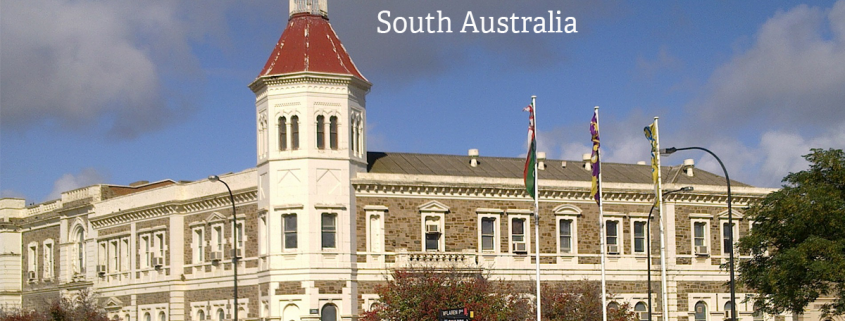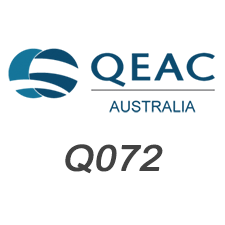South Australia is an excellent option for skilled workers looking to further their careers while enjoying the excitement of living in a new country.
The capital Adelaide is considered one of the world’s most liveable cities for its lifestyle, services and high standard of living. Competitive wages and conditions make it a very attractive place to work and Study.
Interstate graduates can access occupations on the Lists of State Nominated Occupations if they meet requirements.
Refer to the interstate graduate table below to work out if you meet the requirements to apply for state nomination by occupation list and nomination type.
Your eligibility depends on where you gained your work experience (in South Australia, interstate or offshore), where you are currently residing and if you meet chain migration requirements. You must meet all state nomination requirements.
Scenarios for graduates who studied outside of South Australia
| Scenario |
State nomination Availability by Visa type |
Lists of State Nominated Occupations |
| Residing offshore or in South Australia and meet the general work experience requirements
(do not meet chain migration or minimum worked in South Australia requirements) |
489* if graduated within last 3 years.
489* and 190* if graduated more than 3 years ago. |
State Nominated Occupation List |
| Residing offshore or in South Australia and meet chain migration |
190 and 489* |
Supplementary Skilled List or special conditions apply |
| Residing offshore or in South Australia and have at least 6 months skilled work experience in South Australia in the last 3 years (post graduation). |
190 and 489* |
State Nominated Occupation List |
| Residing interstate
Chain migration, South Australian work experience or high points do not override this Commitment to South Australia restriction |
Can’t apply |
|
| Residing in South Australia and relying on Australian work experience with less than 6 months South Australian work experience |
Can’t apply |
|
| Residing in South Australia: living and working in nominated or closely related occupation for 12 months in South Australia or 6 months in country region of South Australia. |
190 and 489* |
All lists
Supplementary Skilled List and special conditions
|
International graduate occupation and waiver requirements
International graduates of South Australia have access to a larger list of occupations for state nomination and can access waivers.
You can access:
- State Nominated Occupation List (including Special Conditions apply occupations)
- Supplementary Skilled List occupations
- State nomination for the Permanent 190 visa for occupations listed as ‘Offshore applicants Provisional 489 visa only’
Requirements for these occupations are detailed below.
General Requirements:
If you are an international graduate of South Australia, you must meet the following general requirements:
1 If you are applying as an international graduate of South Australia, you must meet the same state nomination requirements for commitment to state, age, skills assessment, work experience, English and financial capacity. You may be able to access waivers or exemptions in relation to work experience, English, and financial capacity. Please check the requirements listed under the relevant headings.
2 Your South Australian qualification must be in the same field as your nominated occupation.
3 Your South Australian qualification must be CRICOS registered with a minimum duration of one academic year (CRICOS registered for a minimum of 46 weeks).
4 If any of your studies were undertaken outside of South Australia, a minimum of 50% of your qualification must have been completed in South Australia.
5 For skilled work experience to be considered, it must be in a skilled occupation listed on the State Nominated Occupation Lists.
6 If your occupation is listed as requiring additional work experience in the field (for example, 2-5 years work experience in the field), you must be currently working in your nominated occupation or closely related occupation in South Australia (minimum 20 hours per week).Some of these occupations require you to be currently working for the last 12 months in South Australia in your nominated or closely related occupation (minimum 20 hours per week) post-graduation. See the Lists of State Nominated Occupations for further details.
7 Immigration SA is able to offer a limited number of nominations for occupations that appear as special conditions or on the Supplementary Skilled List. Planning levels apply to all occupations and availability is subject to change. Priority will be given to applicants based on length of employment in South Australia.
Eligibility Guide for South Australian Graduates
The following table provides a guide if you meet supplementary skilled list and special conditions apply requirements based on where you are residing and your maximum level of South Australian gained qualification. Please refer to the full requirements page to check your eligibility.
| Residency location |
Highest qualification completed in South Australia |
Can I apply for Supplementary Skilled List and Special Conditions occupations? |
| Currently residing in South Australia |
Vocational Education and Training (VET) qualification (diploma or certificate) |
Yes – you must be currently working 12 months or more in your field in South Australia (or currently working 6 months or more in your field in a country region of South Australia). |
|
Higher Education qualification (Bachelor Degree or higher) |
Yes – meet the general work experience requirement or be currently employed in a skilled occupation in South Australia*. |
| Currently residing interstate |
Vocational Education and Training (VET) qualification (diploma or certificate) |
No |
|
Higher Education qualification (Bachelor Degree or higher) |
No |
| Currently residing offshore (outside Australia) |
Vocational Education and Training (VET) qualification (diploma or certificate) |
No |
|
Higher Education qualification (Bachelor Degree or higher) |
Yes – meet the general work experience requirement. If relying on Australian work experience 6 months must have been achieved in South Australia. |
* If the occupation is listed as requiring additional work experience in the field (for example, 2-3 years work experience in the field), you must meet this requirement or be currently working in the nominated occupation or closely related occupation in South Australia (minimum 20 hours per week).Some of these occupations require you to be currently working for the last 12 months in South Australia in your nominated or closely related occupation (minimum 20 hours per week) post-graduation.
Waivers and Exemption
International graduates of South Australia with a positive skills assessment for their skilled occupation, currently working in South Australia who do not meet all of the state nomination requirements, could still be eligible for state nomination.
Exemptions or waivers will be provided if you are an international graduate of South Australia and you meet the requirements under the following headings at the bottom of this page:
- Work experience waiver
- Financial requirement waiver
- English language exemption
Work experience waiver and Exemptions
Please note: you will still need to meet any work experience requirements as specified by the skills assessing authority for your nominated occupation.
1 You can access a work experience waiver for both occupation lists if you meet one of the following high performing graduate categories. You will need to be currently residing in South Australia and have completed one of the following qualifications from a South Australian public university (within the last two years) with the required Grade Point Average (GPA) listed below:
- Completed a Ph.D. or Masters by Research
- GPA of 6.0 or above in a Bachelor Degree
- First Class Honours in a dedicated Honours year (following completion of a Bachelor degree in South Australia)
- GPA of 6.0 or above in Masters by Coursework degree (following completion of a Bachelor degree in South Australia).
The three South Australian public universities are: Flinders University, University of Adelaide and University of South Australia.
If you are a high performing graduate from a private higher education provider in South Australia, further information is available here.
2 If you are an international graduate of South Australia, you can access a work experience waiver if you meet one of the requirements below.
2.1 Your occupation is listed as ‘available or low availability’*, you areresiding in South Australia and you meet one of the following:
- Proficient English in each score OR
- Minimum overall score of IELTS 7.5 or PTE Academic 73 or TOEFL iBT 102 or CAE 191 OR
- Passport holder and citizen of the United States, United Kingdom, New Zealand, Canada or Ireland OR
- Currently working in a skilled occupation in South Australia (minimum 20 hours per week).
*Additional work experience required: If your occupation requires 2 – 5 years work experience in the field, you must be currently working in your nominated or closely related occupation in South Australia (minimum 20 hours per week) some of these occupations require you to be currently working for the last 12 months in South Australia in your nominated or closely related occupation (minimum 20 hours per week) post-graduation
Health and Education professionals: Higher English scores apply if registration is required for your occupation or alternatively, you can show evidence of your current registration to practice in South Australia.
Financial requirement waiver
1 If you are an Australian international graduate, you can claim financial support from your parents. Your parents will need to complete the Financial Capacity Declaration to meet this requirement.
English language exemption
1High performing graduates residing in South Australia are exempt from state nomination English requirements for all occupation lists (including Supplementary Skilled List occupations or Special conditions apply occupations). You must still meet the minimum English requirement listed under 3 below.
2 International graduates of South Australia who are currently working in a skilled occupation in South Australia (minimum 20 hours per week) are exempt from the Immigration SA state nomination English requirement for your occupation. You must still meet the minimum English requirement listed under 9.9 below.
3 You must still meet the minimum Department of Immigration and Border Protection (DIBP) requirement of ‘competent’ English.
4 Health and Education professionals requiring registration will need to upload evidence of current registration to practice in South Australia.
Source:http://www.migration.sa.gov.au/International-graduates/international-graduate-occupation-and-waiver-requirements
Disclaimer: The above set criteria and details about Subclass 489 – Skilled Regional (Provisional) Visa South Australia has been copied from http://www.migration.sa.gov.au/International-graduates/international-graduate-occupation-and-waiver-requirements ‘as is’ and no alterations have been made. The document is provided for general information purposes only. Your use of any of this information is at your own risk, and you should not use any of this information without first seeking legal and other professional advice. The provision of this documents (and the documents themselves) do not constitute legal advice or opinions of any kind, or any advertising or solicitation. No lawyer-client, advisory, fiduciary or other relationship is created between VIVID EDUCATION and any person accessing or otherwise using any of the information. Vivid Education and its affiliates (and any of their respective directors, officers, agents, contractors, interns, suppliers and employees) will not be liable for any damages, losses or causes of action of any nature arising from any use of any of this information.








